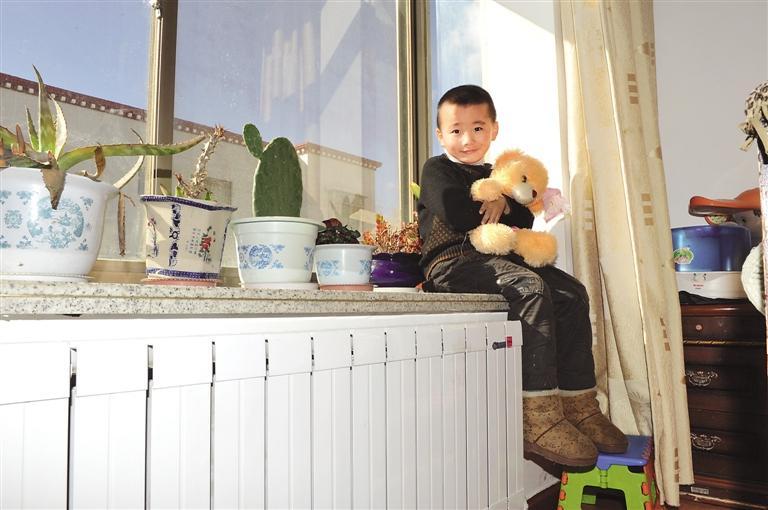Source:CNTV 2015-09-07
That's while learning how Tibetans are living with tradition versus modernization and how their Buddhist faith plays a role in what they do. Our first episode begins with the daily routine of a rural Tibetan family.
68-year-old Kelsang spins her prayer wheel every morning and walks to the village temple. She’s the only Buddhist in her family.
Kelsang's daughter-in-law, Pema, is making sweet butter tea at home while her 70-year-old husband Phuntsok is already on the 13,000-feet plateau, chasing his cattle. Phuntsok has spent his entire life in this village.
Phuntsok, father from Lhampha village, Doilungdeqen county, Lhasa said:“When I was a child – that was before the liberation – my family didn’t have any livestock. I was looking after cows for a manor lord.”
Phuntsok’s family didn’t own any land until 1959, when the People’s Liberation Army came and confiscated the property of the landlords and distributed it to the peasants. Phuntsok joined the communist party in 1962 and served in the township government until his retirement.
28-year-old Tsering Dorji is the only son in the family. He’s quite a star in the village, serving as its accountant, director of the opera troupe and the largest shareholder in a pig farm co-op. Many of Tsering Dorji's peers have left the village, but he’s determined to stay.
“If everybody goes out, the village will then become a wasteland. So I thought I would not leave. I’m going to stay in my village. I’m going to start a pig farm. And I will make it big,” said Tsering Dorji, the son.

Photo shows that Dampa Kelsang, Lhasa citizen Jampa Tsering’s 5-year-old son, is playing in a heating room. [Photo/Tang Bin]
Tsering Dorji took classes in livestock breeding in a central Chinese city and then purchased most of his neighbors' pigs and established a village co-op five years ago. He invited 35 families to join him. The co-op raises 3,000 pigs and earns more than 1 million yuan a year.
This village has about 3,000 residents. But as people walk around, there aren't many people outside. That's because an ordinary Tibetan village can sometimes span several square kilometres. Tsering Dorji tells me that about a quarter of the villagers here are between 18 and 29 years old. He says they've gone to seek jobs in the cities and only come back during the busy farming season.
Tsering Dorji has made himself into a businessman, but his mother insists that he not give up the land and farming.
Kelsang, the mother said:“Why do we need to keep farming? This is because land is farmers’ lifeblood.”
Tsering Dorji said:“I asked some college graduates from our village: “Do you want to start your own business in our village? They said: “Oh, we’ve already been admitted as government officials. The job and pay is more stable.” Tsring Dorji does listen to his mother and grows barley and vegetable seeds, in addition to his pig co-op.
As for Kelsang, she pays her respect to Buddha with clean water every day in a prayer room. She prays that nature treats all beings with mercy.
Copyright © Xizang Daily & China Xizang News All rights reserved
Reproduction in whole or in part without permissions prohibited
Index Code: 藏 ICP 备 05000021 号
Producer: Xizang Daily International Communication Center